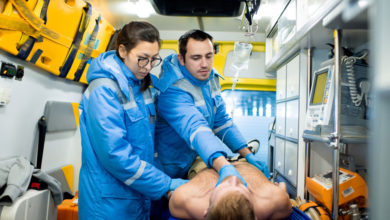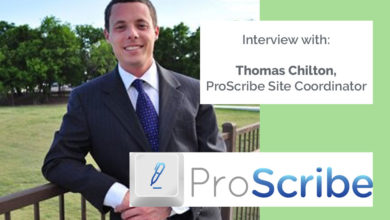
Doctors routinely come across tremendous obstacles while caring for their patients, and yet are expected to provide answers, treatments, and cures. Burdened by a sense of helplessness, some physicians lose hope.
I recently read an article by an emergency physician. Based on his experience in the emergency department (ED) seeing high volumes of patients from every age, ethnicity, and socioeconomic stratum, Dr. Leap observes that many people do not understand their own bodies: “Smokers are surprised that they cough and drunks amazed that they fall.” He goes on to explain, “It’s ironic that, in an age of such knowledge, such access, such health care advances, and so much money spent on education, we have citizens completely disconnected from the realities of their physical existence.”
Dr. Leap repeats what many have said about Americans – we are quick to medicate problems, preferring a quick medical fix (pills, namely) while neglecting the “body, mind, or soul.” We seek care inappropriately when nothing is truly wrong because we refuse to tolerate any amount of physical or spiritual pain. This may be when medicine feels hopeless.
||Read: 3 Areas to (Re)educate Patients in 2014||
All of this may be true, and as an ED physician Dr. Leap no doubt encounters some of the most difficult and frustrating patients in all of medicine. Low-quality education and limited access to routine health care plague EDs and lead to bad health outcomes for patients. I sensed in Dr. Leap’s article feelings of hopelessness and resignation. I wonder, however, if it is possible to face these seemingly insurmountable obstacles without losing hope.
||Read Weekly Weigh-In: Favorite Aspect of Medical School||
I was lucky enough to get my answer last week when I worked at the UCLA Mobile Clinic, which provides basic health care to LA’s homeless in West Hollywood and Santa Monica. My patient – I will call him Ronald – was a black man is his early twenties. When we met, he shook my hand with his right while holding up his jeans with his left, which at size 36, were falling off his narrow frame. Ronald has been living on the street for four years and does not have a regular doctor. He smokes cigarettes and marijuana and uses methamphetamine. When I took his history, I detected signs of psychosis – possibly early manifestations of schizophrenia. Though he has been exposed to blood-borne pathogens through needle use and sexual contact, Ronald has never been tested for HIV, hepatitis C, or any other sexually transmitted diseases. When I examined him, his heartbeat was irregular and I saw signs of glaucoma possibly related to undiagnosed diabetes.
||Read Motivation for Medicine: This Moment||
At Mobile Clinic, we go to the patients and examine them literally on the street. We do not have exam rooms, tables, or even chairs. We sit on the ground and read blood pressures by streetlight. In any clinical setting, Ronald’s case is complex, but on the street out of the back of a truck how could this situation not feel completely hopeless?
||Read Identity Outside of Medicine||
During the three-plus hours of Mobile Clinic that evening, I only saw Ronald. I used our time to talk to him about his health risks. I learned that he was trying to turn his life around – he was motivated to get off the street and quit smoking and using drugs. His education may have been limited, but he was not so “disconnected from the reality of [his] physical existence” as one might think, given his history. He cared enough about his health to seek help when we arrived, and we in turn provided him with string to hold his pants up, clean socks, vitamins to supplement his diet, and a hygiene kit. We also signed him up for health insurance through MediCal (California’s Medicaid program) on the spot, gave him written referrals to a primary care provider and an eye clinic, and provided him with bus tokens to get there. As with almost every patient, there is no quick fix for Ronald. There is, however, hope.
||Read Emotional Intelligence in Medicine||
Going forward in my career, I plan to stay abreast of the issues that stand in the way of good health outcomes and realistic about the problems confronting my patients. I hope, however, that I will continue to frame patient complexity in my own mind as incrementally surmountable challenges. In his article, Dr. Leap states, “Our thoughts, beliefs, and actions (surprisingly) have far-reaching consequences.” When it comes to the health and wellbeing of patients, perhaps part of the solution may be reframing the way in which we, as providers, think.
||Read Develop Compassion before Medical School||
The views and opinions expressed in this article are those of the author and do not necessarily reflect the views of ProspectiveDoctor. Follow ProspectiveDoctor on Twitter @ProspectiveDr



